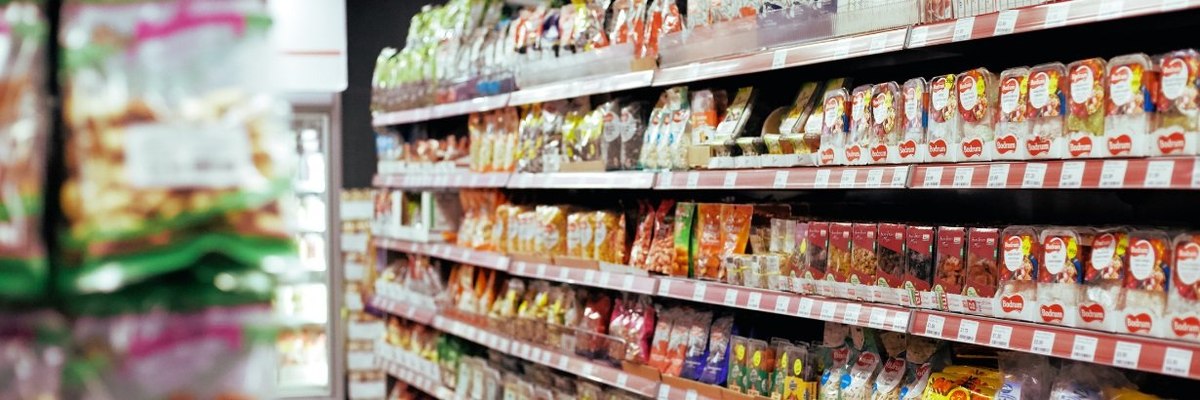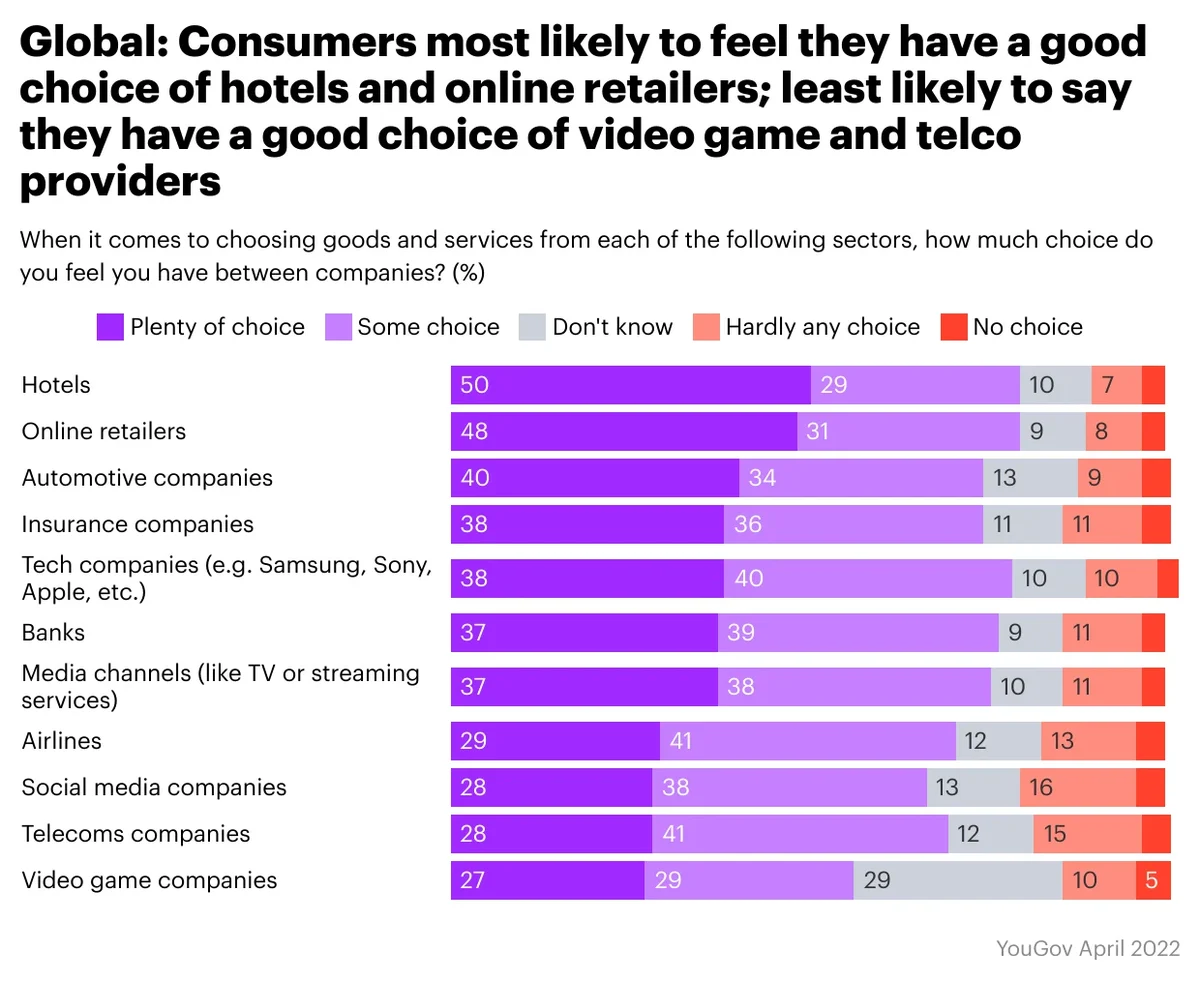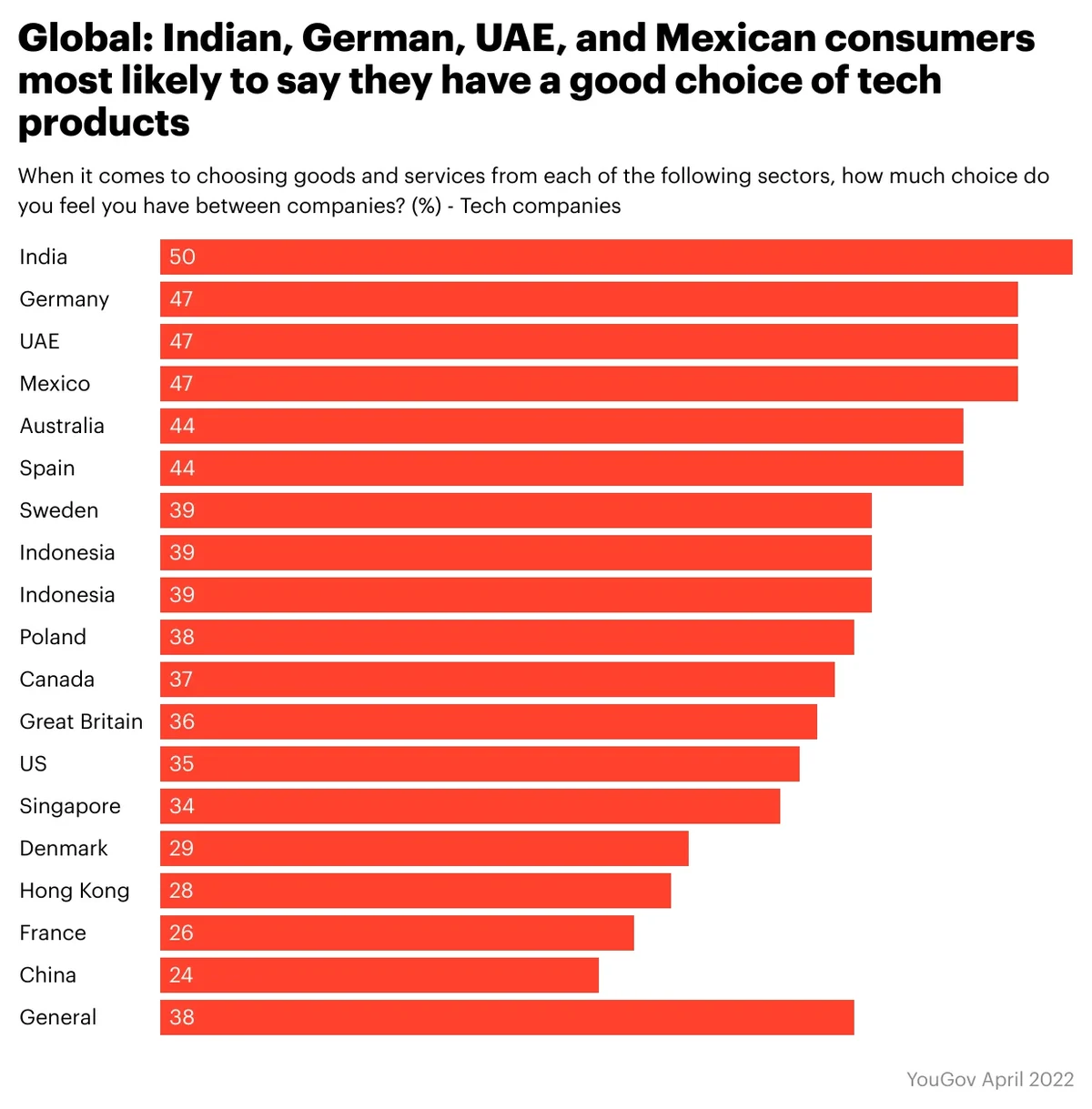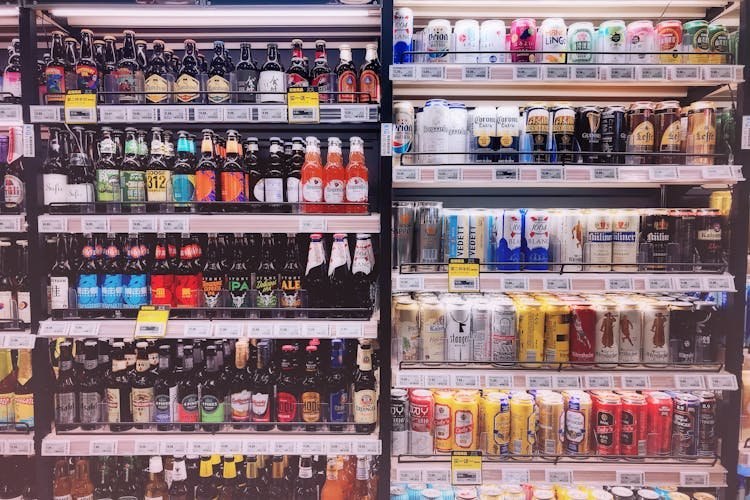
Global: The sectors where consumers do and do not feel like they have a choice in brands
Consumer choice is the difference between a budget travel inn or a luxury hotel; a MacBook or a PC; clothes made of cotton, silk, or nylon. In some cases, it can even be something of an identity: people can define themselves as Coke or Pepsi drinkers, fans of McDonald’s or Burger King, or Xbox/PlayStation gamers.
But in which sectors do the public feel like they have the most – and the least – choice?

New global data from YouGov shows that, across 18 international markets (encompassing Europe, APAC, the Americas, and MENA), consumers are most likely to feel they have at least some choice of hotels (79%), online retailers (79%), tech companies (78%), banks (76%), media channels (75%) automotive companies (74%), and insurance firms (74%).
Video game companies are at the bottom of the scale (66% - with just 27% saying they have a lot of choice) which makes a degree of sense: in the console market, at least, Microsoft, Sony, and Nintendo are the dominant players, and other entrants in the space such as Ouya have not made the same kind of impression. No surprise, then, that 15% say they have hardly or no choice when it comes to video games companies. It’s a similar story with social media firms: with a handful of networks dominating the space, just 66% say they have at least some choice of provider, and just 28% say they have a lot of choice. Consumers are also less likely to say they have options when it comes to telco providers (69%).
There is heavy variance in certain areas. For example, in India, Germany, the UAE, and Mexico, consumers are likelier to say they have a good choice of tech products; in France, China, Hong Kong, and Denmark, they are substantially less likely to say so.

The data is based on the interviews of adults aged 18 and over in 18 markets with sample sizes varying. All interviews were conducted online in April 2022. Data from each market uses a nationally representative sample apart from Mexico and India, which use urban representative samples, and Indonesia and Hong Kong, which use online representative samples.

































